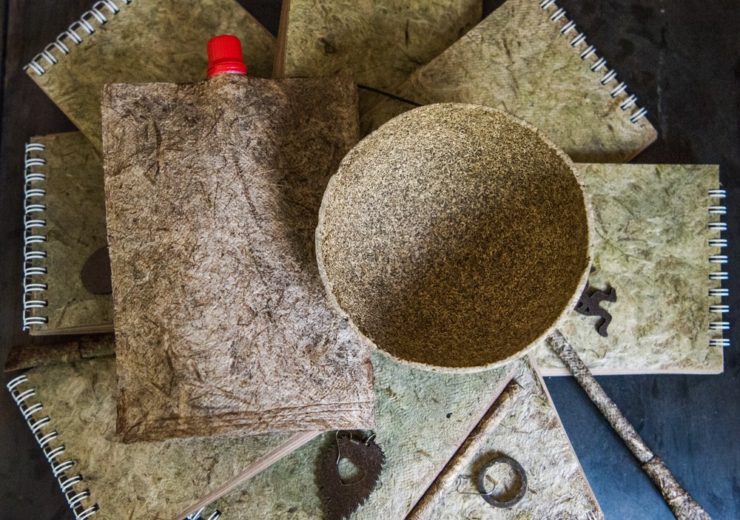Chemelot Campus will provide funding for the development of the biodegradable composite material with nettle fibre as filler

Image: NUST MISIS student wins contract from Chemelot to develop biodegradable composite. Photo: Courtesy of NUST MISIS.
Dutch chemical company Chemelot Campus has awarded a contract to The National University of Science and Technology MISiS (NUST MISiS) student Natalia Kuznetsova for the commercial manufacture of a new biodegradable composite material with nettle fibre as filler.
Kuznetsova developed the biodegradable composite material as part of the thesis at the university’s master’s programme ‘Technologies and Materials of Digital Fabrication’.
Under the terms of the contract, Kuznetsova will bring the project to the stage of the first batch of material, ready for use on an industrial scale.
Chemelot will fund the NUST MISiS student’s project
Chemelot Campus will provide funding of up to €60,000 (around £55,000) for the development of the product.
The NUST MISiS student concluded a contract with Chemelot Campus, a chemical hub in Europe, in August 2019 to continue developing the nettle composite at the company’s site in the Netherlands.
Chemelot is a chemical industry complex that comprises industrial facilities of major European, Japanese, Middle Eastern and Asian petrochemical companies. It is also a campus for innovative companies developing new products.
Kuznetsova said: “Various thermoplastic polymers can be used as a matrix for a composite material. The uniqueness of this material is that the nettle filler reduces the cost of the polymer when calculating the price per kilogram of the material while maintaining its strength characteristics and increasing its elasticity and heat resistance.”
According to Kuznetsova, if biodegradable material polylactide is used as the matrix of a nettle composite, then the composite becomes biodegradable and will be cheaper than the analogs.
Moreover, the heat resistance property makes it possible to use the new material in products, such as tableware, which are used for hot liquids.
Furthermore, if nettle fibre is used along with recycled polymers, the polymer content can be reduced to 50%, allowing further processing of the composite for use as secondary raw material.
The hybrid can also be used to make bio-packaging for household chemicals and food products, dishes, jewellery, children’s toys, office supplies, and bodies for electronic devices. All of these products will be environmentally friendly and inexpensive.
Chemelot Campus intends to sell the first industrial batch of the product to its corporate partners in Europe.
The biodegradable composite project was one of the four finalists of Unilever’s annual acceleration programme.
